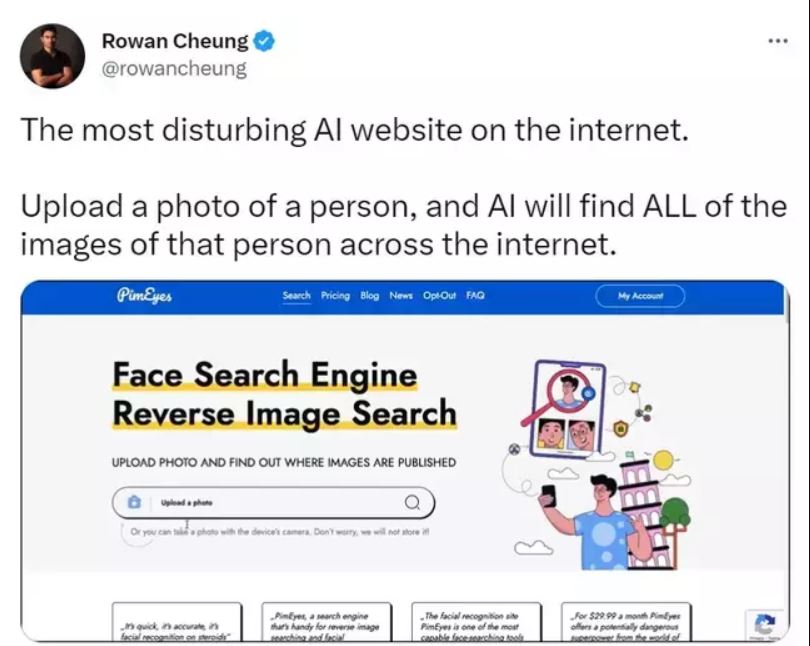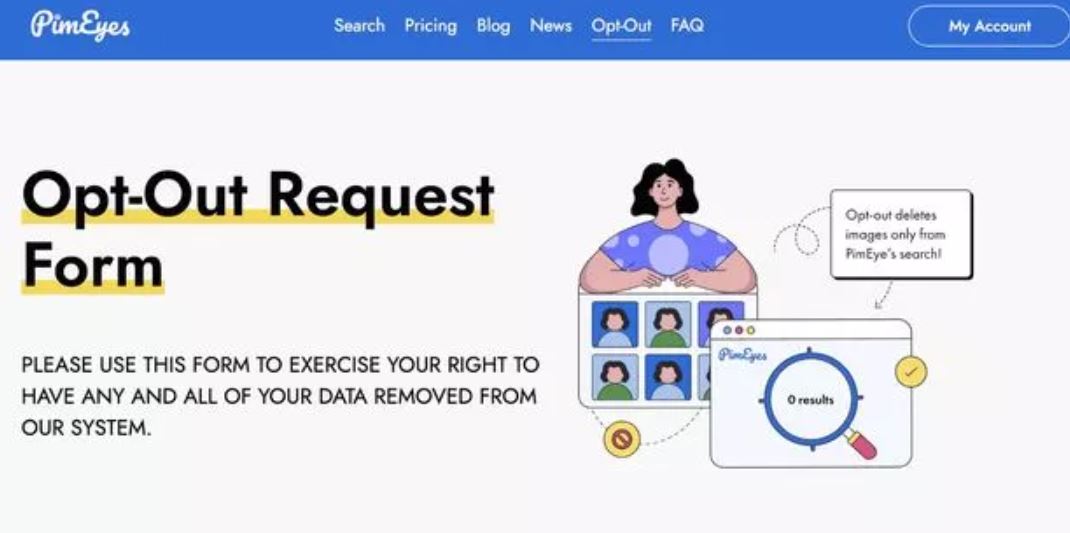
The rapid growth of the user base for ChatGPT, which reportedly surpassed 100 million active users in January alone, has prompted numerous individuals to join the bandwagon.

This AI bot possesses the ability to provide human-like responses to questions and comprehend the context of subsequent inquiries, resembling the dynamics of human conversations.
Additionally, it is even capable of finding its own mistakes or rejecting inappropriate requests.
Despite the continuous advancements in technology, there exists an ongoing debate about the necessity of providing individuals with more information than they actually require.

One example is PimEyes, an AI-powered image search site, which has earned the reputation of being 'the most disturbing AI website on the internet'.
Users can submit a photo of themselves to the site, which then utilizes that image to gather other available pictures of them from the internet.
While some find this feature intriguing, others have criticized it as being a stalker's dream.

Based on a swift test conducted by myself, it appears that the site may excel in identifying your lookalikes rather than locating every single picture of you across the internet. Nevertheless, its speed is incredibly fast.
Utilizing the free service and a hastily captured photo of myself using my work computer's webcam, the site promptly generated eight images. Amongst these, the first two were indeed pictures of me. However, the remaining six consisted of individuals who shared certain facial characteristics, mostly the eyebrows and the beard.

A particular individual described the site as both 'disturbing yet incredibly valuable', commending its ability to identify instances where their face was used without consent, thus enabling them to request the removal of those pictures from websites.
Several individuals concurred that this approach would be indeed beneficial and practical when utilizing the site. Additionally, someone else shared their experience of uploading a picture from their childhood and how the site accurately matched it to pictures of them as an adult.

It was suggested that the technology could prove highly beneficial in cases of 'missing children reports'. However, users discovered that this technology also functioned in reverse.
A different user shared her experience of uploading a current picture of herself, only to have PimEyes identify a picture from when she was 10 years old that existed on the internet.
PimEyes does provide an option for individuals to opt out of appearing in search results. However, the site requires a scan of one's ID or passport for verification purposes, ensuring that the person requesting the opt-out is indeed the rightful individual.




